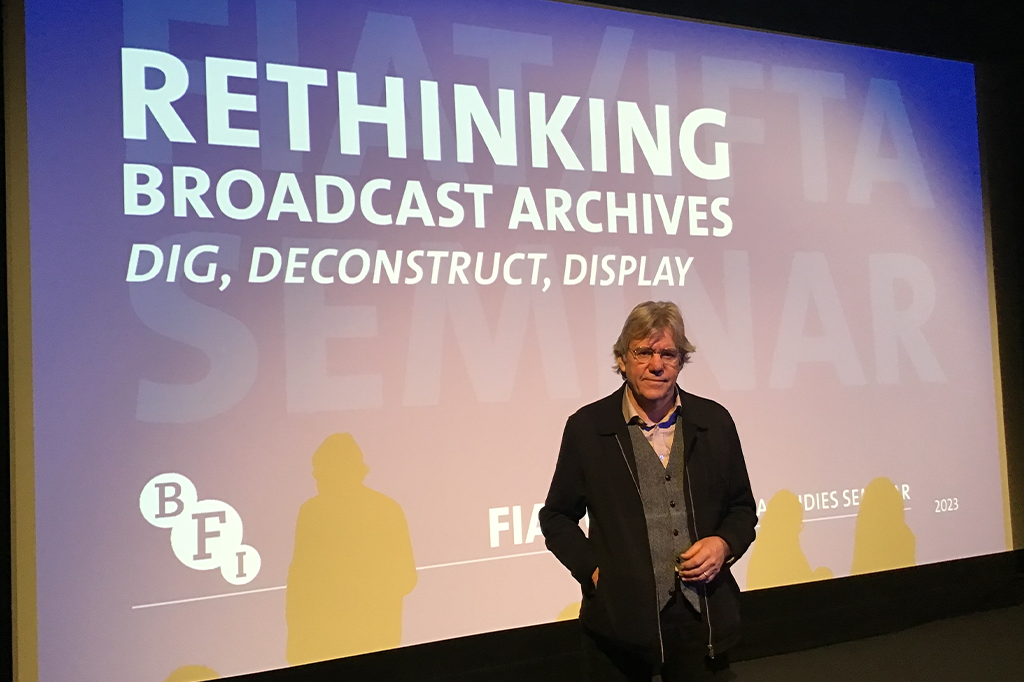Recordings Vol.4 –
Access and Collaboration: New Approaches
The Media Studies Seminar 2023 was hosted by the FIAT/IFTA Media Studies Commission (MSC) and the BFI at the BFI Southbank in London, UK.
The 5th edition of the Media Studies Seminar had Rethinking Broadcast Archives: Dig, Deconstruct, Display as its theme.
Over the coming weeks, the recordings from the Media Studies Seminar will be published on the FIAT/IFTA website and YouTube page, with the final closing round table recording being shared on Thursday, February 22nd 2024.
This week’s sessions are from the panel Access and Collaboration: New Approaches:
- ATLas Chronicles. Designing an Italian Archive of Past Local TV Channels by Luca Barra (University of Bologn), Diego Cavallotti (University of Cagliari) & Emiliano Rossi (University of Bologna).
- “Songs for the Falling Angel” – A Case Study Examining One Example of ‘Digging’ in a Closed Archive to Uncover an Interdisciplinary Research Topic by Alistair Scott (Edinburgh Napier University).
- Whose Voice? Whose Story? BBC Radio News and the Language of Race in Post-WWII Britain by Dr Eleni Liarou & Sylvie Carlos (Birkbeck, University of London).
- Researching the Journalism of Alistair Cooke: The BBC Broadcast Archive and Boston University’s Howard Gotlieb Archival Research Centre by Dr Glenda Cooper & Howard Tumber (City, University of London).
You can access all recordings on the Media Studies Seminar 2023 page.












